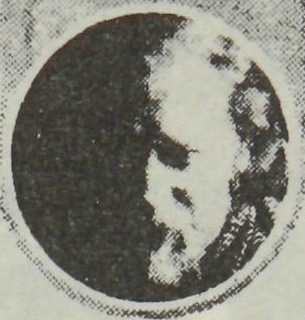Reprinted from The Age, 16th April, 1975.
(By permission of the Author)
Shortly after the death of Harold Holt, John Gorton found it necessary to appoint an advisory committee on film and television. When given a list of suggested names, he asked whom Harold Holt would have appointed. Those names were promptly crossed off the list.
As one of the survivors, and much to my surprise, I found myself in a position to influence an area of Government policy. There might be more flattering ways to be chosen, but who was complaining. After 40 years of neglect you’d have sworn our film industry had fallen from Paramount’s mountain, chewed by the Metro lion and beaten to death by Rank’s gong. Apart from being extensively scorched by Columbia’s torch and badly bruised from a mugging by the Warner Brothers.
With members including Barry Jones, conservative MP Peter Coleman and film producer Stanley Hawes, the committee made the most of its unique opportunity. Where the recommendations of other bodies had been pigeonholed, we had Gorton’s support at Cabinet level.
As a result we soon had an Experimental Film Fund to help young film makers (to Gorton’s eternal credit the first production was an anti-Vietnam documentary) and an Australian Film Development Corporation to fund major features. We were well on the way to getting a National Film School when our patron was deposed.
Whereupon, we got as Minister that pain in the arts Peter Howson. Howson had a ragbag portfolio of lost causes (Aborigines, artists and the environment) and was determined to de-Gortonise wherever possible. Unable to stop such going, growing concerns as the Experimental Film Fund and the AFDC, he decided to scrap the film schools proposals.
And having no intention of seeing two years’ work vandalised, I went on TDT and noisily resigned.
The very next morning, right on schedule, the phone rang. It was Prime Minister McMahon saying “Hello, Phil” (we’d never met) and promising me that the school would, in fact, proceed. Indeed, it would rise over the landscape like Xanadu, resplendent in technicolor with Cinema-Scope plumbing.
The PM assured me that I wasn’t to worry about Peter Howson, who could be a bit dim. “And incidentally,” he concluded, “Sonia sends her love.” (I hadn’t met Sonia either.)
But even with the support of an ingratiating Prime Minister, the fight for the film school was bitter and prolonged. It was opposed by many of the media interests, particularly the Packers, and by the more reactionary among the film makers who saw the graduates threatening their own miserable sinecures.
Then, in the last days of the McMahon Government, Douglas Anthony was persuaded to help. He pressured for the film and TV industries to have a tariff inquiry, and a Mr. Boyer began hearing hundreds of witnesses. He was still considering the evidence presented by the writers, producers and directors – and the contradictory views of the network chiefs and the local managements of the American film companies – when Labor won in December 1972.
A few weeks before that historic event, I met Senator Douglas McClelland for the first time. Obviously unaware of my own involvement, and of my membership of an A.L.P. arts policy committee, he told me that the Experimental Film Fund was a waste of money, that the A.F.D.C. should be closed down, and that the film school seemed an unnecessary extravagance.
Horrified, I urged him to consult more widely before voicing such opinions. I subsequently sent him a list of people prominent in all aspects of film production, from the counterculture’s film co-operatives to the most active professionals. I urged him to meet them all, to hear their views, before attempting to evaluate those Gorton initiatives. And while he thanked me for my advice (I still have the letter) he never took it.
Another thing. I warned the senator that he was seen to have “the wrong friends”, that his close associations with executives of American-owned distribution companies was creating wide-spread suspicion.
At that stage, McClelland was shadow Minister for the media and the arts. Given his prejudices – apparently influenced by his contacts with those film makers regarded as the enemy – I did my best to stop Doug getting that arts portfolio. Looking back, it is clear that others feared his impact on that sensitive and volatile area, and lobbied accordingly.
Finally the Prime Minister was persuaded to retain the arts himself, following the example of Gorton and Dunstan. (Now it’s something of a tradition for heads of government to keep the arts, the latest recruit being Rupert Hamer.)
Naturally enough, Doug wasn’t all that pleased with your columnist, particularly when I was appointed chairman of the Film and Television Board, a main source of Government initiatives and funding. Yet, despite my deep suspicions of his values and abilities, I remained willing to work with him.
However, this was made increasingly difficult by the pattern and quality of Doug’s appointments, both to his department and to other bodies such as the ABC. Like most people, I found these to be either breathtakingly banal or remarkably conservative.
*
The Minister fancies himself as a numbers man. Most certainly he’s always played the A.L.P. machine like a Hammond organ. But he reacted to the criticisms of the film community by isolating himself. His Ministry took on the character of a besieged castle. Instead of trying to talk with film makers, it dropped the portcullis and repelled any approach with boiling abuse.
There was talk of a Nixon-style “enemies list” in trade media, with my name prominent upon it. And I found myself being held responsible for every printed criticism of the Minister, irrespective of the byline.
While it was flattering to be seen as the source of all his difficulties, it simply wasn’t true. There was a growing and wide-spread conviction that the Minister was a bigger cinematic disaster than Earthquake.
Yet, at this late stage, Doug could have got the numbers again. There were still people who wanted to believe in him, who saw him as a sort of Doug McQuixote ready to dream their impossible dream. But their hopes were dashed by his reaction to the tariff report, a reaction that earned him the nickname of Rubber Dougie.
By now, Boyer had handed in his recommendations to the Government. He suggested, amongst other things, that Hoyts and Greater Union Theatres be required to divest themselves of a small percentage of their empires. In this way an alternative distribution system might be developed in Australia, one more sympathetic to the local industry.
As well, Boyer accepted my suggestion that the networks be prevented from paying very high prices for American television programs. The means suggested was a buying group, something that the networks had tried to mount themselves on a least two previous occasions.
Instead of being tricked into paying auction prices for The FBI and Mr. Ed, one bid would be made by a Government agency and the program – and the savings – passed back to the networks. In this way our television channels would be made more profitable. They could then afford a higher level of local production.
However, a distorted and over-dramatic version of this report was leaked to the Press. (Doug McClelland blamed it on “some-one who’s not a public servant”, which seemed to point the finger at me, the only non-public servant who’d had access to the document). Whereupon Jack Valenti’s American colleagues met in Los Angeles and threatened a total boycott of Australia. The major studios would refuse to supply us with feature films and television series.
As Australia is one of America’s two biggest markets the threat was ludicrous, but Doug used it to panic his Cabinet colleagues. He was then able to seize on some constitutional difficulties and, little by little, the tariff report was compromised, dismantled, scrapped.
The only thing Doug salvaged from the wreck was the idea of an Australian Film Commission, a central body to control the destiny of the industry, assisting in both production and distribution. But where Boyer had envisaged an independent body, Doug wanted personal control.
I well remember the meeting where I fought this out with his permanent head, a confrontation witnessed by Tal Duckmanton, of the ABC, Myles Wright, of the Broadcasting Control Board, and any number of people from the PM’s Department and Treasury. I argued that Doug was proposing an East European commissariat, that he’d be in a position of approving or vetoing every film.
This meant one of two things. Either a controversial film wouldn’t be made or, if it was made, that the subsequent controversy could destroy the Minister.
Finally Doug’s forces withdrew, regrouping around the idea of controlling Film Australia, the main producer of Government-sponsored film. This is a body that both deserved and needed its independence, along the lines enjoyed by its Canadian counterpart, the National Film Board.
But Doug was intractable and his control over Film Australia is preserved in the AFC’s final legislation. I still think it smacks of Stalinism in that it gives Doug or any future Minister an unconscionable degree of control over writers, directors and producers.
Doug is given to taking the credit for the boom in feature production in Austrlaia. This is nonsense. The credit belongs to Gorton and to his initiatives. Doug was merely the political beneficiary of that momentum. (A few days back, I attended a lunch to celebrate, at long last, the establishment of a National Film School. Recognising Gorton’s enormous contribution, Prime Minister Whitlam insisted that he attend as a guest of honour.)
Doug also takes the credit for a mythical boom in television production. Boom? His points system has proved utterly ineffective. Look at the sackings in the top-rating Division 4 and the cloud over Matlock. I’m told that employment in the industry is at its lowest for years, despite the introduction of serials like Class of ’75, The Unisexers and other illegitimate progeny of the points system.
But the main cause of complaint remains the Minister’s remoteness from his film electorate, from the people who make up the industry for which he’s responsible. The trade unions, the professional guilds, the people active in community radio who’ve tried desperately to get access to the man. Could it be that he was too busy writing letters to Jack Valenti?
For two years, Doug and I have blasted away at each other over scores of issues, a situation that proved embarrassing to the Arts Council and, I expect, to the Prime Minister. So we tried to negotiate a peace treaty at a meeting in a motel room. I repeated all my criticisms of his policies, his appointments and his tactics … but there were no deals and no compromises. We simply agreed to disagree.
In the months that followed, from that date to this, I’ve done my best to observe the truce. But the Valenti letter confirmed my fears about Doug’s “wrong friends” and made further silence intolerable.
As it happens, the Valenti letter isn’t sinister or Nixonian but just plain silly. It shows that Doug is sadly lacking in political instinct. Read it carefully and you realise that it’s hopelessly naive.
Rubber Dougie is no Tricky Dicky. At heart he is a likeable bloke, and his main political mistakes are a consequence of his undiscriminating friendliness. From the outset, he really believed that he could rely on his friends in the TV networks, in the American film industry, to bring about change. It wouldn’t require tough legislation. Doug could fix it with a phone call.
But he forgot that he wouldn’t be Minister for ever, that another Peter Howson might gain control. He also forgot that television moguls and multinational corporations play a tough game.
I’m sure Valenti gave Doug McClelland undertakings. I’m sure he promised that Hoyts and Greater Union would become active in local production, that the U.S. market would be opened to our local producers. But two years later, there’s no sign of those promises being kept.
After a long period on the simmer, resentment has finally boiled over. This week, organisations and individuals who supported McClelland in successive elections will be meeting and passing angry resolutions. Affiliated trade unions will be adding their voices to the protests.
Yet Doug is still talking in conspiracy terms, as if Adams and a couple of his cohorts were responsible for all his troubles.
Doug, the industry wasn’t out to get you. Australia’s film makers wanted your Ministry to be a success. The irony is that the people you saw as your political enemies always wanted to help. The people you should have feared were your friends.





